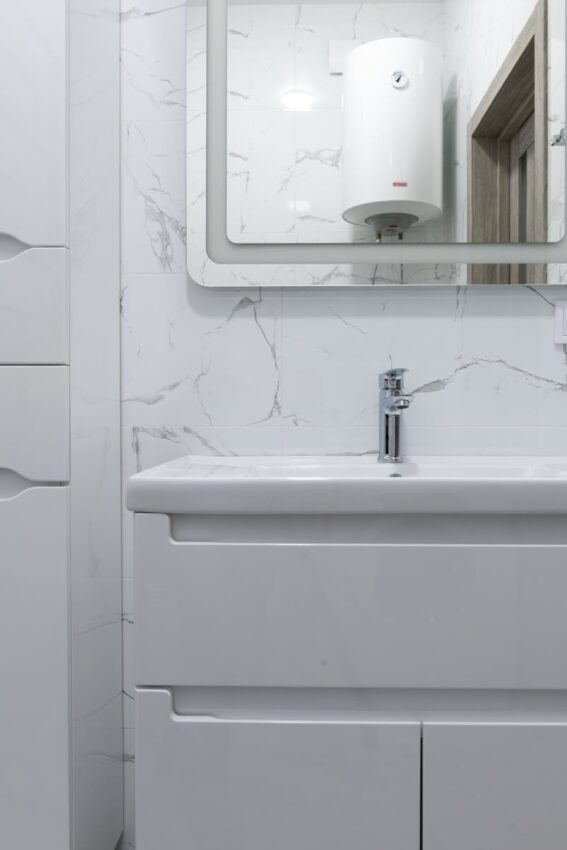There’s nothing like stepping into a warm shower after a long day, but what happens when your water heater decides to quit on you? Suddenly, your cozy routine is replaced with cold water and frustration. Water heater failures are a nightmare that can leave you shivering, but the good news is, they’re often preventable. With a little know-how and regular upkeep, you can keep your water heater humming along happily. Let’s chat about what causes water heaters to fail, how you can prevent those failures, and what to do if your water heater is nearing the end of its life.

What’s the Deal with Your Water Heater?
Before we dive into prevention tips, let’s quickly cover the basics. Your water heater is that unsung hero in the basement or closet, quietly heating water and storing it until you need it for showers, washing dishes, or laundry. Most homes have either a tank-style water heater or a tankless system. Each has its quirks, but both need a little TLC to avoid breakdowns.
If you’re lucky enough to have a Rheem hot water system, you’re already ahead of the game. Rheem is known for making reliable, long-lasting water heaters. But even the best need some attention now and then to keep them running smoothly.
Common Reasons Water Heaters Fail
Water heaters are tough, but like anything else, they can run into problems. Knowing what can go wrong is the first step to making sure it doesn’t happen to you.
-
Sediment Buildup: The Silent Efficiency Killer
Ever heard that hard water can cause problems? One of the biggest issues is sediment buildup. Over time, minerals in your water (like calcium and magnesium) can settle at the bottom of your water heater tank. This sediment acts like a blanket, making it harder for the heating element to do its job. The result? Your water heater works harder, gets less efficient, and eventually, it might just give up.
-
Rust and Corrosion: The Slow, Steady Problem
Water and metal aren’t exactly best friends, especially over time. Your water heater tank is metal, and if it’s not protected, it can start to rust. Most water heaters have a handy thing called an anode rod, which is designed to attract corrosive elements and keep them away from the tank itself. But once that rod is used up, your tank is vulnerable to rust and corrosion, which can lead to leaks and eventually a dead water heater.
-
Thermostat or Heating Element Issues: When the Heat Is Off
Your water heater has a thermostat to regulate the temperature and a heating element to actually heat the water. If either of these fails, you might notice your water is suddenly way too hot, too cold, or just not right. Sometimes, it’s a quick fix—replace the faulty part and you’re good to go. But if left unchecked, these small issues can snowball into bigger problems.
-
Pressure Problems: The Under-the-Radar Risk
Your water heater operates under pressure, and if that pressure gets too high, things can get dicey. There’s a pressure relief valve that’s supposed to release extra pressure, but if it’s faulty or blocked, your water heater could spring a leak or, in rare cases, burst. Checking that valve regularly is key to avoiding these kinds of disasters.
-
The Inevitable Aging Process
Nothing lasts forever, including your water heater. Most tank-style water heaters last around 8 to 12 years, while tankless models can go up to 20 years if they’re well cared for. As they age, their parts wear out, and failures become more likely. If your water heater is getting up there in years, it might be time to think about a replacement before it fails completely.
How to Keep Your Water Heater in Top Shape
Now that you know what can go wrong, let’s talk about how to keep those problems at bay. With a little bit of regular care, you can keep your water heater working well for years to come.
-
Give It a Good Flush
One of the easiest ways to keep your water heater running smoothly is to flush the tank regularly. This means draining a few gallons of water from the tank to get rid of any sediment that’s settled at the bottom. Ideally, you should do this once or twice a year, depending on your water quality. Flushing the tank helps maintain efficiency and extends the life of your water heater.
-
Check the Anode Rod
Remember that anode rod we talked about? It’s a small but mighty part of your water heater’s defense system against rust. Check it once a year, and if it’s looking corroded, swap it out for a new one. It’s a cheap fix that can save you from having to replace the entire water heater down the road.
-
Test the Pressure Relief Valve
The pressure relief valve is there to make sure your water heater doesn’t build up too much pressure. To test it, lift the valve’s lever and let some water flow out, then let it snap back into place. If water keeps dripping after you release it, the valve might need to be replaced. Regularly testing this valve helps prevent pressure problems that could lead to leaks or worse.
-
Keep the Temperature in Check
Most water heaters are set to 120 degrees Fahrenheit, which is hot enough for your needs but not so hot that it stresses the system. Keeping the temperature at or below this level reduces the risk of overheating and can help your water heater last longer.
-
Get a Professional Tune-Up
While there’s a lot you can do on your own, it’s also smart to have a pro take a look at your water heater once a year. They can spot potential issues you might miss and take care of more complex maintenance tasks. A little professional care goes a long way in keeping your water heater in good shape.
Knowing When to Say Goodbye
Even with the best care, your water heater won’t last forever. Knowing when it’s time to replace it can save you from an unexpected cold shower—or worse, a flooded basement.
-
How Old Is Your Water Heater?
As we mentioned earlier, most water heaters last about 8 to 12 years. If yours is getting up there in age, it might be time to start thinking about a replacement. Sure, it might still be working fine now, but older units are more likely to fail, and replacing it before it dies can save you a lot of hassle.
-
Constant Repairs: A Sign It’s Time to Move On
If you’re calling a plumber more often than you’d like, it might be more cost-effective to replace your water heater. Frequent repairs can add up, and sometimes it’s better to invest in a new unit rather than patching up an old one.
-
Rising Energy Bills: A Hidden Sign of Trouble
If your energy bills are creeping up, your water heater might be losing efficiency. An old or failing water heater has to work harder to heat the same amount of water, which costs you more in the long run. A new, energy-efficient model can help lower those bills.
-
Rusty Water or Leaks: The Final Warning
If your hot water starts coming out rusty, or if you notice water pooling around the base of the heater, it’s a sign that the tank is corroding from the inside. Leaks are often the last straw before a water heater fails completely, so don’t ignore them.
Keeping the Hot Water Flowing
Your water heater might not be the most glamorous appliance in your home, but it’s definitely one of the most important. With a little regular maintenance and attention, you can avoid the stress of a sudden breakdown and enjoy reliable hot water year-round. Whether it’s flushing the tank, checking the anode rod, or keeping the pressure in check, these simple steps can make a big difference. So take care of your water heater, and it’ll take care of you!
